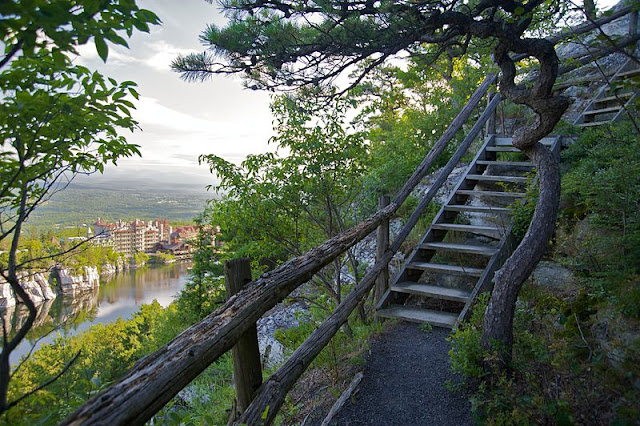Many sports fans mountain undressing often-maybe the most important part of your body when hiking or mountaineering: foot. In this article our intention is to show a general guide and some
certain tips to help us choose the right type of boot that we use for
the activity we will develop and the type of terrain that we're moving.
We choose our shoes based on the type of raids that usually we do for the mount. The
activity that we will perform along with the type of terrain that we're
moving and the time of year when we are the key that activity. Before we go to a shop to have these things clear.
You
need to be aware that the boots "for all" do not exist, and therefore
it is best to have a pair of shoes of different mountain for each
condition (summer or winter b.p.); or only boots that fit the main type of route that we used to practice mountain. However,
they do exist some common aspects that have to assess when making our
choice, whatever the use we are going to give our boots. We are talking about the sole and breathability.
SoleWhether for hiking, trekking or mountaineering, the sole should always slip and tacos. Today, it is best to decant us by Vibram: sole grippy and highly resistant to abrasion. However, some brands make their own sole (b.p. Contagrip, the Salomon brand). Although these more "generic" soles usually have between mediocre and
good results in easy terrain, they leave much to be desired to more
difficult terrain.
How to choose a good hiking bootsSometimes
when I look for hiking boots I find people trying to find some nice
boots, leaving second option comfort or good finish of the boot (My
girlfriend, for example). The
design may play an important role in clothing, but in the mountains we
must put aside and look as comfortable and practical as possible. Your
teammates will walk for a long time and gradually suffer such wear that
not even you will remember what initially seemed nice. Ideally, try and try until you bear with your perfect boot. Once, twice, three times or we need, but never you to stay with the first that you may proboscis.
With
this initial advice, I encourage you to continue reading so that you
can find best hiking boots live up to your expectations, primarily for
use in the spring, summer and autumn. We have divided into sections that our view we think are the most important, starting with the exterior.
exterior protectionIt is the fastest to see any boot and what we should look very good. For example check that reinforced seams come as double seam (see photo). This
must have good appearance and if they also come with rubber on the toe
or heel, check that this is not stuck with super glue and sometimes even
see the glue ... bad sign. It would not be the first time that I take off the protections of a boot.Many models have a tape on the back to move the cord and offer extra support. Personally I have hardly used. It is also used to put the boot more easily.
In addition many boots wear rubber reinforced toe or even the entire bottom of the boot. This not only combat chafing but also additional protection against water. This type of boots usually have a higher price and often wear boots higher quality. This sometimes eye increases the weight of the bootPractical
advice is advisable to test the boot up and down a ramp, because the
behavior of shoes on flat terrain is very different from what we find in
our outings, where slopes are common. Thus, the foot moves naturally and can detect the slack and possible future hassles. It
is necessary to prove the two boots, as is usual for a longer than the
other foot is taken and if the difference is usually small (average
number, English size, a difference of 4 mm. Long), sometimes it depends on the choice of size. Choose the size that is needed and not a larger size as the old way. A boot of inadequate size can produce blisters, the greatest enemy of the mountaineer. Use,
test the boots, the same sock we will use in our outings, considering
that a good sock is essential for maximum performance footwear. Sudden temperature changes can damage and prematurely age boots. So, to avoid binging and / or drying near the fire, radiators, windows closed with vehicles exposed to sunlight or outdoors. If we let them get wet boots to dry at room temperature. We will extract the templates and we can help with papers introduce newspaper inside to absorb moisture. If
the boots were dirty, they must be cleaned with a cloth dampened with
clear water (if there is mud, help with a semi-stiff brush). The
template will be removed and cleaned with soap and water, leaving dry
template boot and slowly open and airy place, filling with newspaper
inside the boot to prevent deformation.

